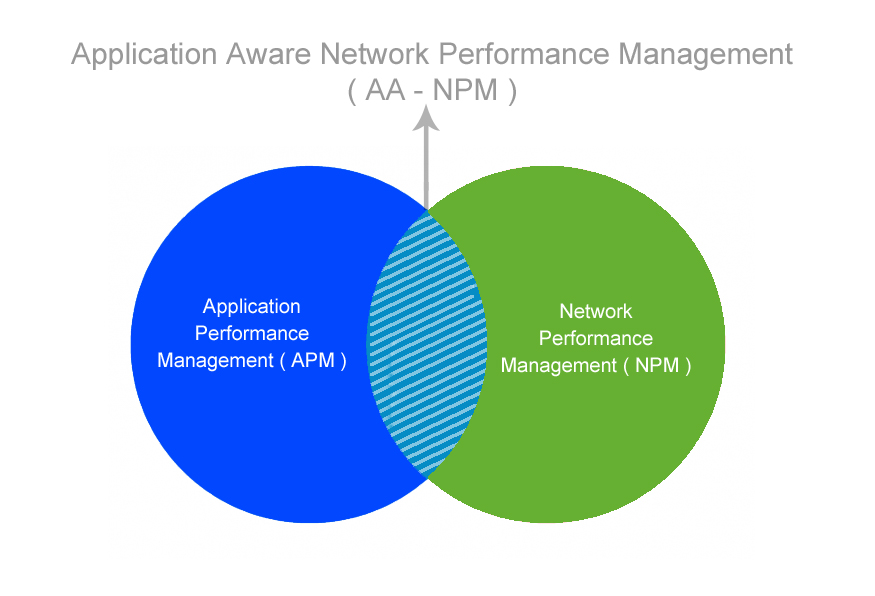5 Reasons You Should Consider Application-Aware Network Performance Management
In today’s complex business environment, the first question thoughtful IT leaders ask when
considering any new IT investment or change is, ‘How will it impact the business?’ That the
business depends on well-managed IT is well understood. What is less well understood is how an
IT organization can manage an infrastructure that is growing ever more complex. It’s not just the
network infrastructure that IT teams need to consider; it’s not even the increasingly complex
application infrastructure that stands between the physical network infrastructure and the users.
The challenge today involves the effective management of both these infrastructures as well the
interplay between them — and it’s the interplay between them that poses the greatest challenge.
Application-aware network performance management (AA-NPM) tools can help you overcome
that challenge.
What is AA-NPM?
These days, before an application appears in front of an end user, it may pass through numerous
infrastructure components, as shown in the diagram below:

Traditional or stand-alone application performance management (APM) tools provide visibility
only into the middle component group, the application infrastructure. They typically support
auto-discovery of all the applications in the networks, transaction analysis, application usage
analysis, end-user experience analysis, and more. They also provide the basic functions to
monitor the health and performance of all configured application infrastructure assets.
But APM tools do not provide insight into the network infrastructure itself. Typically, network
infrastructure managers rely on separate network performance management (NPM) tools for
fault management, device monitoring, capacity planning, interface traffic analysis, configuration
management and those sorts of tasks.
these tools is designed to facilitate the management of the interplay between these environments
— and to optimize the user experience of an application in this environment the interplay
between these infrastructures must be understood and well-managed.
That’s where an AA-NPM solution is critical. An AA-NPM solution integrates these vital entities and provides complete visibility into these business critical infrastructures and their dependencies. This insight can help organizations and IT executives gain:
1. Better visibility into IT infrastructure
Executives using an AA-NPM solution can have a single dashboard view of their critical
business applications and underlying network infrastructure. Reporting can be run at a very
granular level, providing better visibility into Key Performance Indicators (KPIs) and enabling
more well-informed decisions about device performance and usage. This has proven to be a great
benefit for the highly virtualized environment, where virtual machines often go underutilized.
2. Clearer business co-relation
Integration into vital modules of IT allows business executives to better understand the value in
IT. Such integration enables IT teams to create business services composed of IT infrastructure
that are responsible for the health and availability of critical applications. It also becomes easier
for business executives to narrow down the cost involved in running such applications and to
understand the cost that will be incurred if the service goes down or goes offline for
maintenance.
3. Faster troubleshooting of problems
One of the biggest challenges for IT professionals is to find the root cause of a problem. This
dilemma persists due to lack of insight into asset dependency. An AA-NPM solution enables an
engineer to drill into the deepest levels of the service delivery infrastructure and to troubleshoot
problems faster and more effectively than ever. Research has shown that integration enables the
deployment of better analytics, which in turn enables engineers to prepare for the future and
perform proper capacity planning during the peak usage hours.
4. Improved user experience
Increasingly, today’s applications are built from loosely coupled components that can exist in
many different places and in many different infrastructure tiers — even within a single
organization. If an end user experiences a problem with an application, discovering the root
cause is complicated because of the different infrastructure tiers in place. To improve that
end-user experience, IT organizations need tools that can provide a comprehensive view of all
those infrastructure elements — and provide insight into how data and messages move between
those elements. To improve the user experience even before it degrades, it would be better to be
able to monitor the system proactively and find end-user experience problems before the end
users report them. If you were able to do that — and an AA-NPM solution can be a huge help —
you could eliminate many poor experiences before your users even encounter them.
5. Enhanced productivity and optimal budget usage
With a unified console to manage network and application infrastructure, IT organizations can
find root cause problems more quickly and easily. This reduces mean time to repair (MTTR) and
improves overall quality of service. A unified AA-NPM solution also enables an organization to
eliminate the need for multiple tools (and avoids the expense of consolidating them). It can
reduce the complexity of the management environment, make better use of available budgets,
and improve collaboration and productivity.
The bottom line? AA-NPM tools effectively enable IT professionals to gain the insight they need
into the interplay of all the infrastructure elements that comprise the user experience of a
web-delivered application. They provide a mechanism for monitoring and managing application
and network infrastructure as a single entity.
Cheers,
Suvish
Related Links:
This article was originally posted in APM Digest: http://bit.ly/14L9IdX
More on ManageEngine’s Unified IT story: http://bit.ly/hgK1Yr



